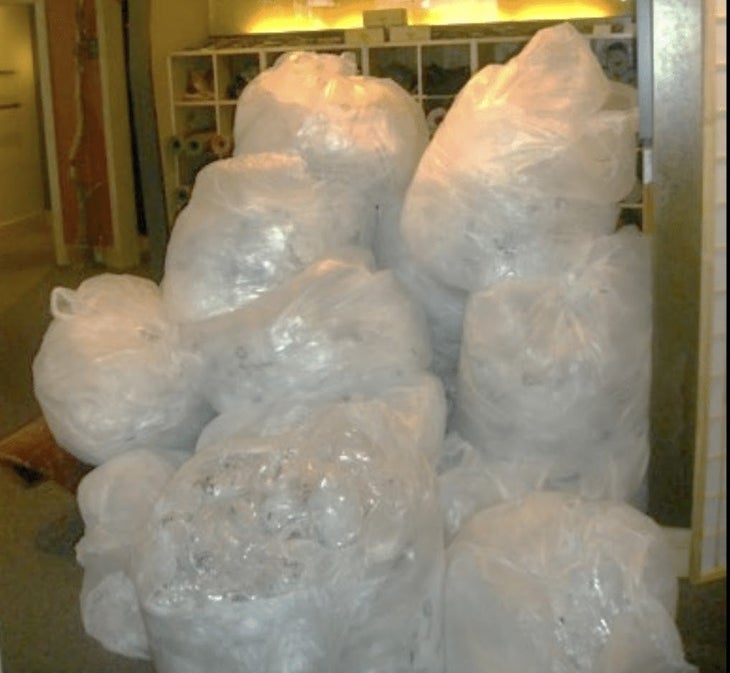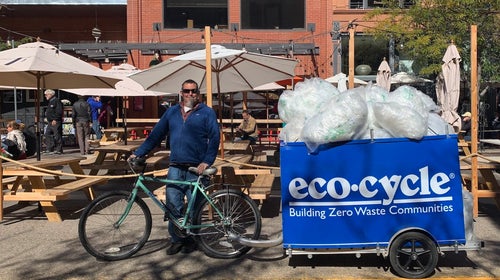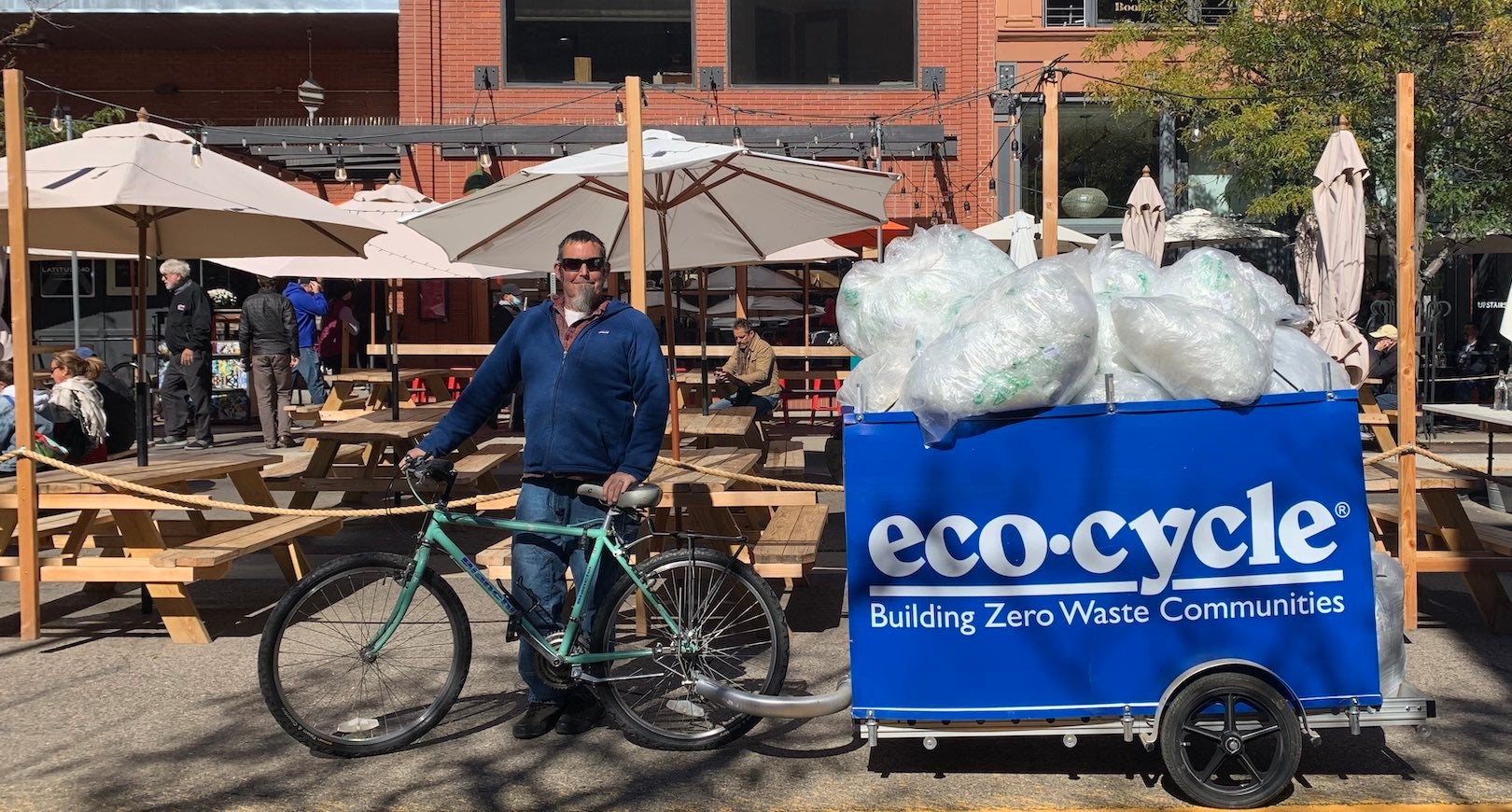In the back rooms of retail shops all over the country, mountains of plastic polybags are piling up every day. Whenever a new shipment arrives from a vendor, there’s always a sense of excitement at unboxing time: cool, new stuff has been delivered and the employees are eager to get it out onto the floor.
Then a grim reality sets in: nearly every item—from apparel to accessories to hard goods—comes encased in a polybag. And that polybag needs to be disposed of.��
Polybags are not easy to recycle, which is why most towns don’t. Yet so many polybags come printed with the recycling symbol, which is deceptive and counterproductive. When consumers see that symbol, they assume the bag is safe to toss into their single-stream recycling bin. This “wishcycling” results in clogged machinery at the sorting facilities.
The outdoor industry is well aware of its polybag problem and many companies have made steps to move away from them. PrAna has nixed them altogether and pioneered a new roll-packing method. Grunden’s has sourced a home-compostable paper bag that it now uses for its apparel. NEMO has done away with plastic tent pole bags.��
Cutting ties with polybags is not easy. The thin film is very effective at protecting items from liquid and dirt during transit. Polybags are cheap and widely available throughout virtually all supply chains.
The Plastic Impact Alliance, a coalition of more than 430 outdoor companies intent on eliminating single-use plastic from their businesses, and Eco-Cycle, one of the largest non-profit recyclers and Zero Waste organizations in the U.S., have just launched a three-month pilot program in Boulder, Colorado, to collect, recycle, and quantify the polybags accumulated from 11 outdoor businesses along the Pearl Street Mall.��
“Eco-Cycle is excited to support the commitment of our partners in the outdoor industry to develop an effective and efficient model of recovering polybags from retail settings,” said Kate Christian, corporate sustainability manager at Eco-Cycle. “This pilot will explore a novel bicycle-based collection system which minimizes environmental impacts and costs in hopes of establishing a replicable example of zero-emission collections.”
How the Pearl St. Polybag Pilot Works
Once a week, two (paid) students from Boulder High School will pedal a custom trailer from store to store and collect the polybags. The students will deliver them to ���ϳԹ��� Inc.’s new Pearl St. headquarters for storage. Once a month, Eco-Cycle trucks will collect the bags and take them to the Eco-Cycle/City of Boulder Center for Hard-to-Recycle Materials (CHaRM). There, Eco-Cycle will catalog data about polybag generation rates, bale them, and send them to Trex. Trex uses polybags as the primary feedstock in producing their line of composite decking, a long-lasting product that does not require treatment with toxic chemicals, and simultaneously decreases the burden on hardwood trees like redwoods and cedars that are typically used to construct decks and piers.
“We will use the data we gather from the pilot to guide the development of polybag recycling efforts across retail brands’ operating footprints,” said Christian.��

The businesses committed to the pilot are all members of the Plastic Impact Alliance: Artilect, Backcountry, Black Diamond, ����ä������ä�����, Helly Hansen, Himali, Norrona, ���ϳԹ��� Inc., Patagonia, Sherpani, and Stio.
“Every single Plastic Impact Alliance member I speak with has ambitions to find polybag alternatives in the long term,” said PIA co-founder Kristin Hostetter. “Some companies are already there, some have just barely started the journey, and we’ve got everything in between. In the meantime, though, the polybags are piling up at retail shops across the country. With this pilot program, we hope to put some numbers on the problem, and as a result encourage brands to step on the gas and work together to find solutions. And of course, we will also divert a whole lot of plastic from the landfill during the three month period.”
Some large national retailers (like REI, Patagonia, and The North Face) already collect and properly recycle polybags at their retail locations. But the many hundreds of independent specialty outdoor retailers around the country simply don’t have the resources to do so.
“It’s a massive problem,” said Nate Porter, founder of Salida Mountain Sports in Colorado. “Sometimes the mountain of plastic waste we have to deal with after a shipment is received takes up more space than the shipment itself. And we are not equipped to properly recycle the stuff. As an industry we need to find more sustainable alternatives to polybags.”


